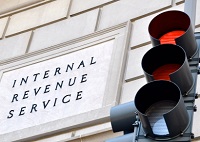The IRS has been a bit busy lately, as it has released several new or updated forms as well as guidance for the tax-exempt sector. Here’s a summary:
Form 990-EZ: This form was updated to help organizations avoid common mistakes when filing annual returns. It provides help icons marked with a blue question mark that provide helpful information needed to complete the fields. The IRS hopes that this change will make it easier for exempt organizations to avoid problems at the outset and prevent additional contact from the IRS.
Form 1024-A: This new form resulted from Congress’ recommendation to the IRS that they draft an application specifically for 501(c)(4)s. Going forward, organizations applying for recognition of 501(c)(4) status must use this form rather than Form 1024 (which will continue to be the form for other non-501(c)(3) organizations). While filing for exemption is not required for 501(c)(4)s, many file anyway for the recognition of their exempt status from the IRS.
Form 1024: This form has been updated to remove questions applicable to 501(c)(4) organizations, which have moved to Form 1024-A.
Form 1023: This form for recognition of 501(c)(3) status has been updated concerning new IRS procedures for public charity status for section 170(b)(1)(A)(ix), which adds a section for an agricultural research organization that directly conducts research in conjunction with a college or university. It also has a revised Schedule E, which no longer has the option for organizations filing more than 27 months after their formation date to get exempt status under 501(c)(4) for the period between formation and postmark date.
User Fees: The IRS has reduced the user fees associated with applications for tax-exempt status. The fee is now $600, except for those filing Form 1023-EZ. User fees used to be based on an organization’s gross receipts, which resulted in many organizations paying the maximum fee of $850. Additionally, the group exemption letters user fee has been reduced by $1,000 to a fee of $2,000.
Determination Letters: The IRS will no longer issue determination letters for exempt status to organizations with certain purposes. These include organizations whose purpose is to “improve business conditions of a line of business relating to an activity involving a controlled substance which is prohibited by Federal law regardless of state legality, such as activities involving marijuana”; or to an organization (other than a governmental entity) that wishes to relinquish its exempt status.
Timing of Exemption: In Revenue Procedure 2018-5, the IRS has removed references to flexibility in effective dates for organizations seeking recognition of exempt status more than 27 months after their formation date. For most exempt organizations that submit an application past the 27-month period, the effective date of their determination letter will be the date their application is post-marked—as opposed to their date of incorporation. Exempt organizations other than 501(c)(3)s can still claim to be exempt from formation as self-declared exempt organizations, however. For 501(c)(3) organizations, there is still an exception that can allow such organizations to be recognized as exempt from formation, even if they apply past the 27-month period, if they can demonstrate they acted reasonably and in good faith, and that such an extension will not prejudice the interests of the government.


